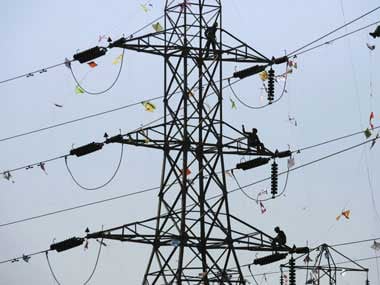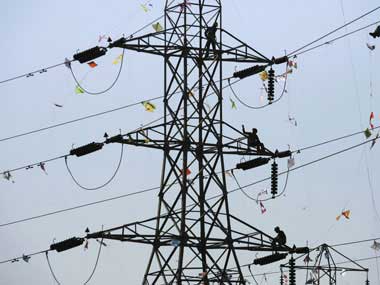Big business is aghast at a court ruling earlier today which allows the Comptroller & Auditor General (CAG) to audit books of accounts of private telecom companies. India Inc fears that if CAG is allowed to audit telecom companies and - as has already been made amply clear to the three power distribution companies in Delhi - discoms in Delhi, no business is safe from the prying eyes of the Government.
[caption id=“attachment_1299089” align=“alignleft” width=“380”]  Representational image. Reuters[/caption]
Ficci’s newly elected President Sidharth Birla in fact said so in as many words. Agency reports quoted him saying today that, “As far as audit through CAG is concerned, we believe the CAG was constituted to be answerable to Parliament in respect of businesses which are owned by the government. So therefore to my mind, there is no place for CAG interfering into a private company’s books.”
Delhi’s discoms have also been voicing shrill protests against any CAG audit, saying their operations do not come under CAG’s purview and anyway, they are already audited by auditors who are CAG approved.
So then why is the Government unleashing the CAG monster on telecom and power distribution firms? Does it want to scare big business away? Telecom firms are owned by billionaires such as Mukesh Ambani and Sunil Mittal whereas two of the discoms in Delhi are joint ventures between Reliance ADAG and the state government, the third between the Tatas and the state government.
The government, to my mind, has been forced to get CAG to audit these companies because there is little transparency in the way they function. Besides, if airports at Delhi and Mumbai, which are being run under the Public Private Partnership (PPP) models, have not objected to CAG audits, why should telecom and power firms raise doubts?
Impact Shorts
More ShortsTelecom firms need to pay annual charges to the Government for using spectrum and as license fee and these charges are calculated on the basis of their revenue. Delhi discoms have been claiming huge losses and have also been saying that since 85 percent of their costs are from buying power itself from state run entities, why audit them? The state power suppliers are already audited by CAG.
Let’s look at the issues in telecom to begin with. Late last year, the CAG picked holes in the telcos’ calculation of Adjusted Gross Revenue - the parameter which is the basis for telecom service providers paying the Government an annual levy called license fee. The telcos and the Department of Telecom differ widely on what all revenue streams fall within the AGR purview and what falls outside.
An online story in Mint newspaper earlier today put the annual earning of the Government from such revenue share at Rs 20,000 crore. Is this not significant enough for the Government to want to freeze what comes under AGR? Telcos pay 6-10 percent of AGR as licence fee. AGR is defined as the revenue earned by the telcos, minus monies that do not accrue to it directly, such as service tax that goes to the government and interconnection charges that go to other telcos.
The Mint story says that telcos argue that their earnings include those that did not come from their telecom-related business. The DoT responded that these revenues would not exist had it not been for the telecom licences and services. The 2010 audits by CAG found that the telcos had to pay around Rs 1,600 crore more in revenue share for which show-cause notices have already been sent by the DoT.
A letter the CAG wrote to the DoT late last year exemplified this: As on December 31, 2012, Bharti Airtel was catering to 90.28 lakh customers in Delhi with 10 mhz spectrum and its Adjusted Gross Revenue for 2011-12 was Rs 2621.62 crore. But four other operators were having total spectrum up to 29.2 mhz and their total AGR for the same period was only Rs 1757.16 crore. This means the four telcos have an AGR which was only two-thirds that of Bharti. “It was therefore evident that scarce spectrum is not being utilised efficiently, economically and optimally…. and causing huge loss on account of spectrum usage charges to the Government exchequer,” the CAG noted.
Besides license fee, AGR is also used to calculate spectrum usage charge which telcos pay to the Government. So by pointing out the discrepancy in AGR and spectrum held by telcos, CAG was basically speaking of lost revenue of crores to the Government which would have accrued had the spectrum been used efficiently.
Similarly, even if discoms in Delhi have nothing to hide, why not open up to CAG first and then look for much needed power sector reforms instead of making shrill noises? Delhi’s Lieutenant Governor has already said unless these companies agree to an audit, their licenses might be cancelled.


)

)
)
)
)
)
)
)
)



